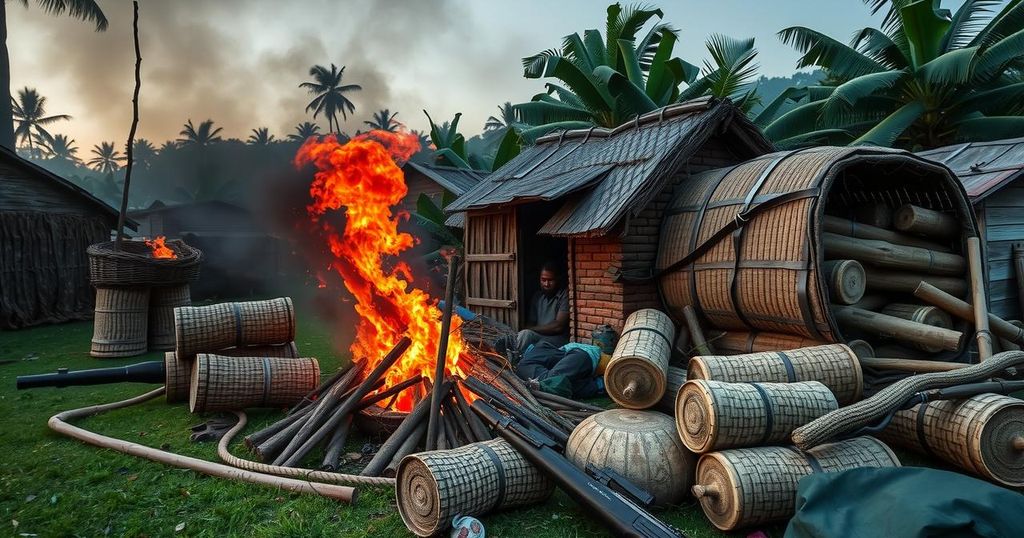The Democratic Republic of Congo is engulfed in a longstanding conflict driven by historical ethnic tensions, competition for natural resources, poor governance, and foreign interventions. The violence has resulted in widespread human rights abuses, mass displacement, and extreme poverty, necessitating urgent measures for justice, humanitarian relief, and comprehensive peace-building efforts.
The ongoing conflict in the Democratic Republic of Congo (DRC) is a complex crisis rooted in historic and socio-political challenges that date back to the post-colonial era. Since gaining independence from Belgium in 1960, the nation has experienced a detrimental cycle of violence fueled by ethnic divisions, political corruption, and the competition for its abundant natural resources. Notably, armed groups, some of which are comprised of local militias, have emerged as key players in the conflict, acting out of a perceived necessity to protect their communities amid prolonged instability.
Conflict has been particularly prevalent in eastern regions of the DRC, adjacent to South Sudan, Uganda, Rwanda, Burundi, and Tanzania, with waves of violence erupting in central, southern, and western provinces as well. The landscape of conflict is marked by an evolving tableau of alliances and rivalries, driven by economic interests and ethnic identity.
Several underlying factors are contributors to the escalating violence in the DRC. Poor governance and management have historically obstructed effective nation-building since independence, an outcome often exacerbated by land and resource conflicts. The colonial legacy significantly intensifies ethnic tensions, having grouped diverse populations without regard for historical animosities. Furthermore, the DRC’s wealth in natural resources, such as coltan, gold, and diamonds, fosters competition among armed groups vying for control. Weak governance structures since the long rule of Mobutu Sese Seko, alongside foreign intervention from neighboring countries, particularly Rwanda and Uganda, have compounded these issues.
The conflict has inflicted extensive human suffering. Civilians are caught in violent conflicts, which have prompted extensive human rights abuses, including mass killings, sexual violence, arbitrary detentions, and forced disappearances. Displacement has reached alarming levels, with millions fleeing their homes in search of safety and basic humanitarian needs. Furthermore, despite its wealth, the DRC ranks among the poorest countries globally, with the majority of the population living on less than $2.15 per day, highlighting the dire need for access to healthcare, food, and education.
Overcoming the cycle of violence necessitates comprehensive strategies aimed at justice, accountability, and humanitarian aid for the victims. It is imperative to address historical grievances while ensuring strict measures against perpetrators of atrocities. Establishing a framework for truth, justice, and reparations is essential to mend the societal fabric of the DRC and pave the way for lasting peace and stability.
Understanding the conflict in the Democratic Republic of Congo requires an examination of its historical context, including the ramifications of colonialism and a series of post-colonial conflicts. Ethnic tensions have long been exacerbated by arbitrary borders drawn during the colonial era, while the struggle for resources continues to underlie ongoing violence. Since independence, misgovernance and corruption have hindered the establishment of stable political systems, resulting in a fragmented landscape where armed groups multiply, exploiting both resources and local grievances. This backdrop elucidates why issues such as human rights abuses and poverty persist in the DRC.
The crisis in the Democratic Republic of Congo is underscored by a confluence of historical, political, and economic factors that feed a prolonged cycle of violence and suffering. With millions of civilians affected and deep-seated ethnic tensions stemming from colonial practices, the prospect of achieving peace hinges upon addressing fundamental injustices, promoting accountability, and fostering humanitarian support for those impacted by the conflict. It is imperative for both national and international communities to commit to a process of reconciliation, reparations, and sustainable development.
Original Source: www.amnesty.org






